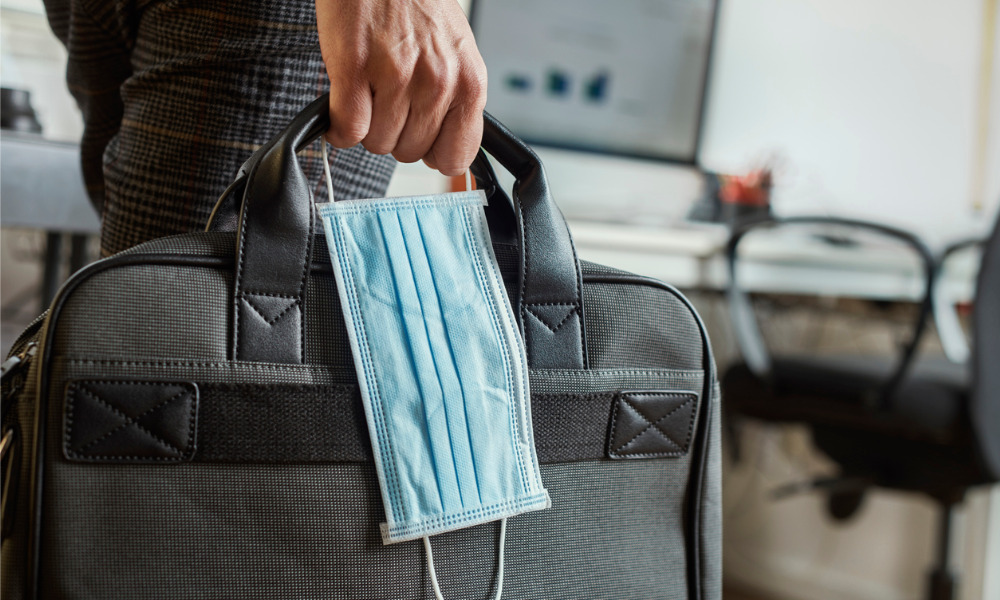
Can workers coming out of the lockdown continue to stay out of the worksite?

Businesses are gearing up for a ‘new normal’ this week as New Zealand scales back its restrictions on social and economic activity to Level 2 after spending nearly two months under lockdown due to the COVID-19 pandemic.
Employers are preparing to follow stricter workplace protocols – from subjecting workers to regular temperature checks and requiring them to wear protective gear, to maintaining wider distances between workstations. These measures are only a few examples of how they are willing to comply with regulation.
Under New Zealand’s Health and Safety at Work Act 2015 (HSW Act), companies are mandated to provide a safe environment for their staff. But given the continuing health risks that abound – especially in the absence of a vaccine or cure against the novel coronavirus – can workers coming out of the lockdown continue to stay out of the worksite?
READ MORE: Can workers in essential services refuse to work due to COVID-19?
If the employer has ensured all reasonable and practicable health and safety measures are in place before the business reopens, then the employer has the right to require all workers to come back to the worksite. But they must take concrete steps to allay their workers’ fears.
“The question in all potentially hazardous circumstances is whether the PCBU [person conducting a business or undertaking] is doing enough, and whether the worker has ‘reasonable grounds’ to refuse to go to work based on serious, immediate or imminent exposure to COVID-19,” said Greg Cain and Richard Monigatti, lawyers at Dentons Kensington Swan.
“A central consideration for protection from COVID-19 will be whether the workers have access to appropriate Personal Protective Equipment (PPE) and training on how to use it effectively,” the lawyers shared with HRD.
“The PCBU must not only provide appropriate PPE, but also be confident the PPE is sufficient to minimise the possibility that its workers will contract COVID-19, so far as is reasonably practicable,” they said.
Facing a higher risk
While employers begin to introduce additional precautionary measures, they are also encouraged to approach employee requests to remain at home on a case-by-case basis.
If a worker or a member of their household has health issues that put them at a higher risk of contracting the disease, then the employer and employee should evaluate whether the employee can report for duty “in a way that appropriately manages the risk,” Employment New Zealand said.
Coronavirus: Can you request medical info from an employee's doctor?
“During this discussion, it is important that employers consider their duty of good faith towards their employees, obligations under the Human Rights Act about not disadvantaging people with a health condition, and their obligation to keep workers safe,” the agency wrote.
“If the worker and employer agree that it is not possible for them to safely continue working,” the agency said, “both parties should agree what their leave arrangements will be and the employer should apply for support on the worker’s behalf.”
When applying for the COVID-19 Leave Support scheme, the employer should sign a declaration indicating that they have gone over the application with the worker and that the worker grants the company permission to share their information.
Workers who are entitled to the leave support scheme include the following:
The fourth category includes “workers with chronic lung disease or moderate to severe asthma, serious heart conditions, immunocompromised conditions, severe obesity, diabetes, chronic kidney disease, people undergoing dialysis, liver disease, [and] those over 70 years of age, particularly with underlying health conditions,” said Employment New Zealand, citing the criteria set by the Ministry of Health.
Stay safe, stay up to date, stay compliant and receive essential legal insights. Join us at HRD’s Employment Law Masterclass on 17 and 18 June.